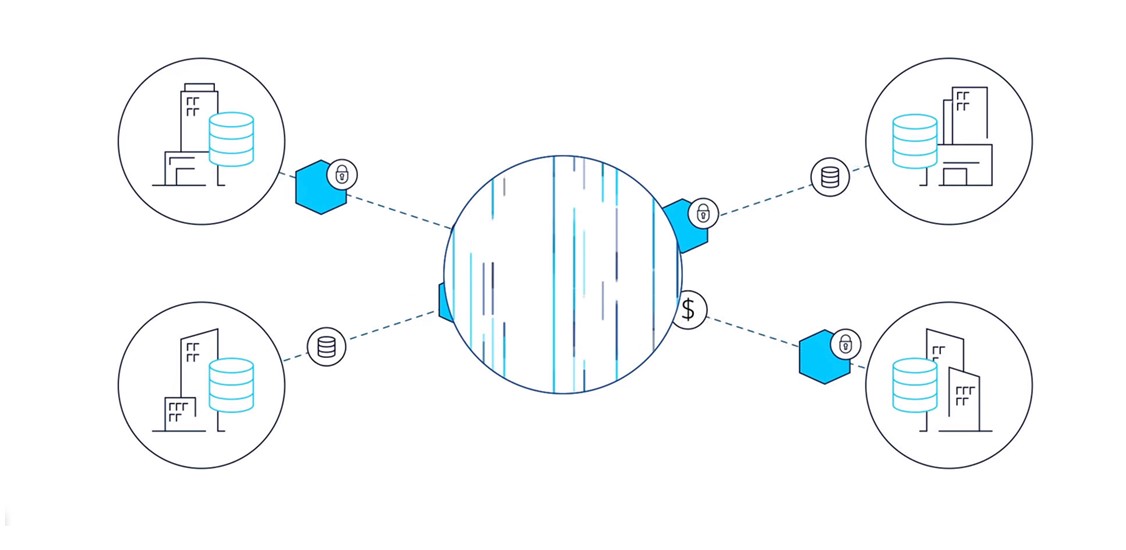In March this year, Nokia announced that Equideum Health (Equideum), a US-based healthcare software solutions provider, has selected Nokia Data Marketplace to power its blockchain-based Equideum Exchange. The exchange enables individuals and enterprises to share and monetize health data, while preserving the rights and ownership of such data. In an interview, Heather Leigh Flannery, Founder and Chief Executive Officer at Equideum Health and Friedrich Trawoeger, SVP - Cloud and Cognitive Services at Nokia, spoke to The Fast Mode about the partnership and what it signifies for the health industry. The discussion revolves around the economics of health data, the impact of COVID-19 and how emerging technologies and IT models including blockchain, AI/ML and SaaS are driving global health equity and outcomes.
Rao: In the case of healthcare, how does Equideum Exchange empower individuals to monetize their health data and why?
 Heather Leigh Flannery
Heather Leigh FlanneryFounder and Chief Executive Officer, Equideum Health
Heather: Every breath we take, every heartbeat, our very existence in this new technological society contributes to more data about us. This data is arguably one of the most valuable asset classes in the human economy — that can be quantified and monetized in its own right.
At the center of all the information that we see being generated is the data subject, i.e. the person about whom such information revolves. At Equideum, we envision a future where the data subject not only has the rights to this information, but is also fully-empowered to participate in its economy, estimated to be worth approximately USD42 to USD50 billion. At present, none of these flows are traceable to the data subject, with most individuals being absolutely clueless of the transactions and the related ecosystems, despite being involved in the consenting and authorization. The idea of Equideum Exchange therefore, is to bridge this gap and create a transparent ecosystem that delivers an equitable outcome for all participants. At the same time, we aspire to leverage this new capital flow and source of liquidity in the form of data to address health challenges and deliver long-standing unmet needs of the global health sector.
Rao: What does this mean for the healthcare industry for e.g., a use case such as privacy-preserving clinical trials matching?
Heather: The life cycle of clinical trials involves dozens of milestones, where data is procured by pharmaceutical companies to support a wide range of processes from study and trial design to site selection, and then ultimately to the recruitment of participants. This however, can be highly challenging due to the presence of imperfect information. Patients who wish to be made aware when they match an inclusion or exclusion criteria very rarely are informed of the trials that might be available to them. Meanwhile, pharmaceutical companies continue to grapple with a dire shortage of trial participants, despite the substantial investments made in research sites.
This information failure is what has pushed our efforts in the decentralized trials space, an area led by Equideum as part of its role as a founding member of the Decentralized Trials and Research Alliance (DTRA), where it puts a number of emerging technologies into action to address the barriers to the execution of high-quality clinical research. In fact, we are going beyond the matching of data to addressing other prevalent issues including bioethics compliance and cyber security, given the criticality of preserving the privacy, agency and dignity of research subjects in large scale deployments. This is how privacy-preserving clinical trial matching becomes the first transaction type to be available through the Equideum Exchange.
Rao: How are blockchain solutions empowering individuals to share and monetize their data, securely and efficiently?
 Friedrich Trawoeger
Friedrich TrawoegerSenior Vice President, Cloud and Cognitive Services, Nokia
Friedrich: While data exchanges have been around for some time, there has been little progress in the realization of a data economy where such exchanges lead to a successful transfer of value between participating individuals and businesses. The introduction of blockchain, which is essentially a technology for recording transactions and tracking assets, has since become a gamechanger as it addresses data security compliance and integrity, the two biggest hurdles towards this progression. Blockchain solutions make data transactions traceable and secure, not just for healthcare, but across any industry where such exchange of data takes place. NDM, which features both the private permissioned blockchain and an interface to the public blockchain through an abstraction layer, leverages the distributed nature of the technology to ensure data security, traceability and integrity. This goes a long way in delivering greater assurance for individuals and businesses, and increasing participants’ motivation to monetize their data.
Rao: How does NDM address the needs of enterprises and individuals for a secure and reliable data sharing platform? What is driving the demand for such platforms?
Friedrich: NDM primarily addresses the need to securely exchange and monetize data. The need for this is evident from some of the observations we can make around us, where despite generating large amounts of data, individuals are rarely interested in sharing and monetizing it due to issues revolving around trust and security. NDM builds on this need by providing a secure and reliable avenue which individuals can entrust their data transactions with.

More importantly, NDM tackles the fragmentation in the industry in terms of health data exchange and monetization. In this case, the current pandemic has acted as a catalyst by highlighting severe shortcomings in the present system where multiple, fragmented data silos across the globe have made alignment of data virtually impossible for even the simplest of tasks such as vaccination passwords. As an integrated platform that works with any number of data sources and types, NDM removes this fragmentation by not only globalizing the exchange and monetization of health data, but by enhancing trust and reliability among participants by incorporating consent, privacy and rights management which are executed via its smart contracts.
Rao: Why might the SaaS model be the preferred approach to providing a data sharing platform for a marketplace such as Equideum Exchange?
Friedrich: SaaS delivers some of the key essentials for this market, namely platform responsiveness and scalability. SaaS allows customers to introduce changes and upgrades almost instantaneously and scale up their operations without having to build their own local instances or replicate existing ones. Whether it is a public cloud or a private cloud, the SaaS model provides customers access to the latest versions of the available technologies in the cloud space. This is crucial in ensuring service availability and time to market, two attributes that can greatly enhance Equideum Exchange’s offerings and customer experience.
Rao: How does NDM, including its SaaS deployment model, help Equideum reach its vision and accelerate the roll-out of Equideum Exchange?
Heather: The SaaS model adds to our existing deep relationships in the cloud space, which includes partnerships with Microsoft’s Azure and Intel Confidential Computing. With NDM, we are able to take this to the next level, capitalizing on the flexibility that is offered by NDM in terms of different deployment options, destination cloud service providers and compute stacks. By leveraging Nokia’s highly-developed capabilities, features and functions, we can focus on building net new capabilities that are unique to the healthcare and life sciences industry.
Another enablement brought by NDM is AI-based intelligence. As an advanced application, NDM uses AI-based methods including AI modelling and machine learning to match data and expedite the fulfillment of data pipelines. Our partnership with Nokia allows us to tap into these capabilities and accelerate our vision of a data economy where we could unlock the value hidden in data silos around the world, especially when it comes to pressing issues such as cures for chronic/rare diseases and health disparities.
Rao: Technology-wise, how do advancements in big data and AI enhance the capabilities of data sharing platforms and the services they enable?
Friedrich: The overall approach, design and architecture of NDM, including the use of advanced technologies such as AI/ML builds on Nokia’s long standing expertise and experience in its core business, i.e. the telecoms sector. Nokia’s mature and highly-developed data capabilities have been used by CSPs to translate data from billions of their users and end devices into valuable insights used for managing network performance and for optimizing their networks. By tapping into NDM, Equideum earns immediate access to these capabilities, allowing it to manage millions of data points and derive the insights it requires to fuel its use cases.
Rao: Apart from healthcare, what are the other industries and use cases that can also leverage NDM for data sharing and monetization?
Transportation, logistics, energy and utilities as well as the public sector are some of the sectors that are set to benefit tremendously from access to NDM. For example, our partnership with a key player in the maritime industry, where precision and logistics are critical, is expected to deliver up to 30% in cost savings across all phases of the supply chain including shipping, inbound/outbound and agency dealings. Another example will be the sports industry where we have collaborated with a major football sports company to empower thousands of players, via NDM, to share personal sports and health data and monetize it individually or via a sponsor. At the end of the day, our approach is to focus on sectors where we can make a difference. Healthcare, in this context, presents a great opportunity by allowing us to empower individuals and drive the creation of a better healthcare system.
- To learn more about Nokia Data Marketplace, visit NDM Page
- How is data fueling the digital transformation of industries? Find out in this Nokia Data Marketplace ebook
- Learn about blockchain and how it is driving today’s connected ecosystems in Nokia’s Futurithmic series podcast featuring Wouter van Neerbos, Founding CEO of Marlin SCX
- Equideum Health and Nokia will present an educational webinar on April 14th. Learn about Health 3.0 – the person-centered future of healthcare also known as Ownership Health.






















